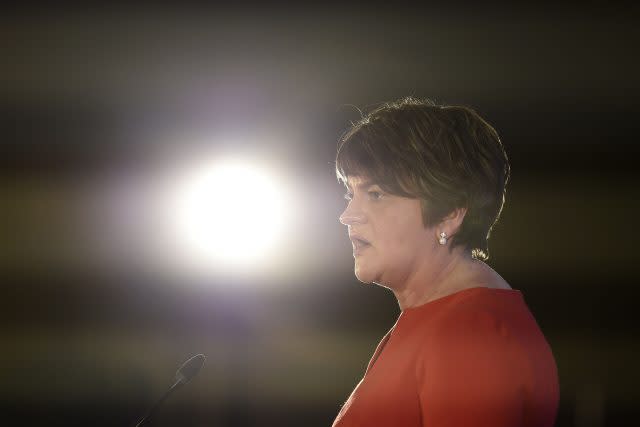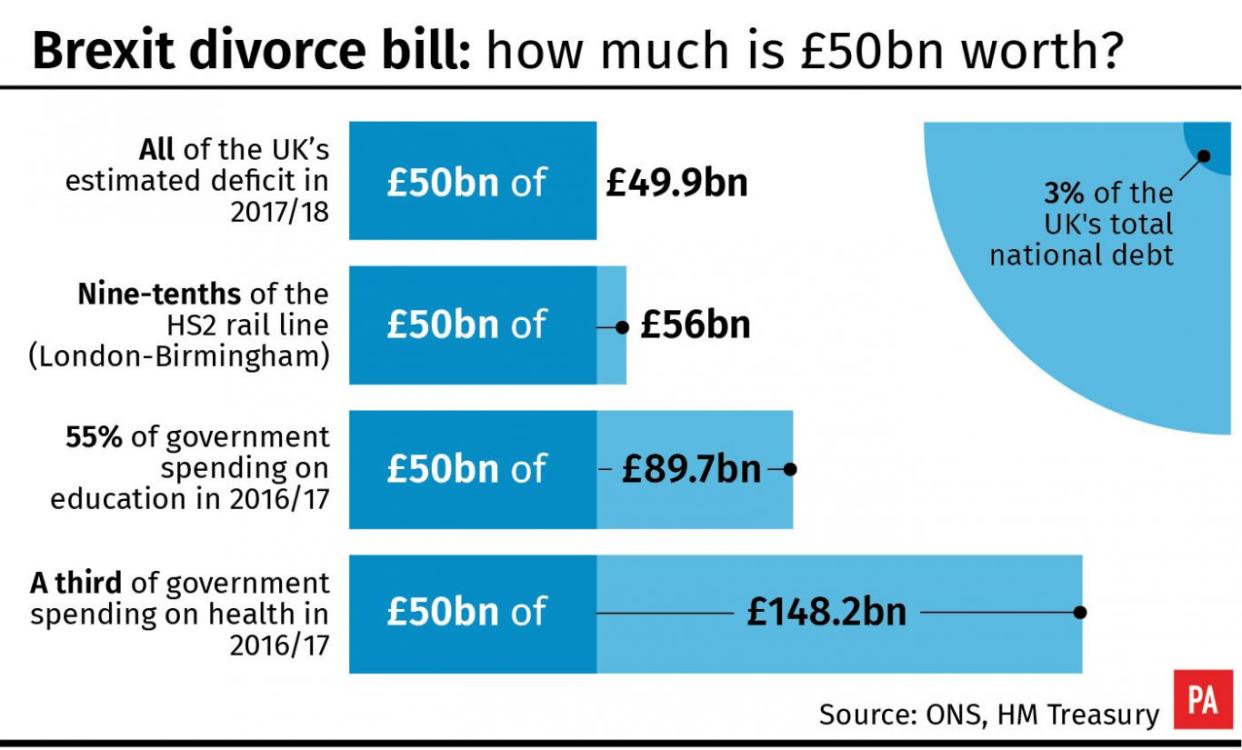PM races to revive Brexit talks as Irish border row threatens to drag into 2018

Theresa May is facing a high-pressure race against time to make progress in Brexit talks amid a deadlock over the Irish border which threatens to drag on until the new year.
The Prime Minister is hoping to make a new offer by Friday to satisfy both Ireland and the Northern Irish Democratic Unionist Party which props up her Government and scuppered a deal on divorce issues on Monday.
Pressure is growing on Mrs May to get leaders at the December 14 European Council summit to declare sufficient progress has been made on divorce issues so trade talks can begin, with business chiefs warning companies will activate contingency plans that will cost Britain jobs if there is further delay.
After talks in Dublin, Irish Taoiseach Leo Varadkar and Dutch PM Mark Rutte made clear the EU would not compromise and allow the Irish border to be kicked down the road to phase two of the talks, even under threat of Britain crashing out with no deal or divorce negotiations dragging on to 2018.
Just finished a very open, friendly and warm meeting with Dutch PM @markrutte. Ireland & Netherlands are both small countries with big neighbours & we share common values, a globalist approach & a commitment to the EU. pic.twitter.com/sBk6g9DdTf
-- Leo Varadkar (@campaignforleo) December 6, 2017
And after a phone call with Mrs May on Wednesday, Mr Varadkar said the PM was hoping to return with a new formal written offer "tonight and tomorrow", but warned if there was no agreement talks would be picked up in the New Year.
Downing Street said Mrs May told Mr Varadkar she was "working hard to find a specific solution to the unique circumstances in Northern Ireland" and was committed to "moving together to achieve a positive result on this".
The PM also spoke with DUP leader Arlene Foster, whose rejection of plans for "regulatory alignment" between Northern Ireland and the Republic led to the collapse of a proposed deal on Monday.

But it is understood Mrs Foster has no immediate plans to fly to London for talks with Mrs May and any such move would depend on progress in negotiations between the DUP and the Government in London.
Confederation of British Industry (CBI) president Paul Drechsler underlined businesses' "immediate" need for a transition deal, telling the City of London Corporation: "Or 60% of firms with contingency plans will have put these into effect by Easter. That means jobs leaving the UK - in most cases irreversibly."
Meanwhile, senior ministers came under attack over their positions on Brexit as Chancellor Philip Hammond revealed the Cabinet had not yet discussed details of the UK's preferred long-term relationship with the EU.
Mr Hammond also received a slapdown from Downing Street after suggesting it was "inconceivable" the UK would not pay a financial settlement to the EU, regardless of whether it obtains a trade deal.

The Prime Minister's official spokesman swiftly said the payment - estimated at up to £50 billion - was "dependent on us forging (a) deep and special future relationship with the EU".


